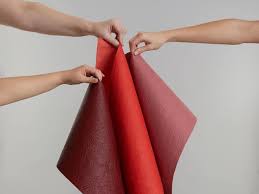The Most Eco-Friendly Materials for Clothing and Accessories
As the fashion industry moves toward sustainability, choosing the most eco-friendly materials is essential for reducing environmental impact. The best sustainable fabrics and materials are those that require minimal resources, reduce waste, and have a low carbon footprint. Here are some of the top eco-friendly options for clothing and accessories:
1. Cactus Leather
Cactus leather is one of the most sustainable alternatives to traditional leather. Made from the prickly pear cactus, it requires minimal water, is biodegradable, and is free from toxic chemicals. It provides durability and a premium feel, making it ideal for footwear, bags, and accessories.
2. Organic Cotton
Unlike conventional cotton, organic cotton is grown without harmful pesticides and synthetic fertilizers. It uses less water, protects soil health, and is biodegradable, making it a top choice for sustainable fashion.
3. Hemp Fabric
Hemp is one of the most eco-friendly textiles available. It grows quickly without pesticides, improves soil quality, and requires minimal water. Hemp fabric is highly durable, breathable, and naturally biodegradable.
4. Linen
Derived from flax plants, linen is a low-impact fabric that requires little water and few pesticides. It’s biodegradable, strong, and becomes softer with use, making it a long-lasting sustainable choice.
5. Tencel (Lyocell and Modal)
Tencel is made from responsibly sourced wood pulp, using a closed-loop production process that recycles water and solvents. It is soft, breathable, biodegradable, and requires less energy to produce than synthetic fabrics.
6. Piñatex (Pineapple Leather)
Piñatex is a plant-based leather alternative made from pineapple leaf fibers, a byproduct of the fruit industry. It’s biodegradable, cruelty-free, and a great alternative for vegan accessories.
7. Recycled Polyester (rPET)
While traditional polyester is made from fossil fuels, recycled polyester is created from post-consumer plastic waste, such as water bottles. It reduces plastic pollution and energy consumption, though it still sheds microplastics.
8. Bamboo Fabric
Bamboo grows rapidly without pesticides and requires little water. However, it’s essential to choose mechanically processed bamboo fabric over chemically processed versions to ensure sustainability.
9. Wool (Ethically Sourced)
When sourced responsibly, wool can be a sustainable material. Ethical wool comes from sheep raised with high welfare standards, and the fabric itself is biodegradable and long-lasting.
10. Cork
Cork is a natural, renewable material harvested from the bark of cork oak trees without harming the tree. It’s lightweight, water-resistant, and biodegradable, making it an excellent choice for accessories like bags and wallets.
Boatman Style’s Commitment to Eco-Friendly Materials
At Boatman Style, we prioritize sustainability by using innovative materials like cactus leather to craft stylish, durable, and eco-friendly footwear and accessories. Our mission is to reduce fashion’s environmental impact while maintaining quality and style.
By choosing eco-friendly materials, we can all contribute to a more sustainable fashion industry. Join the movement with Boatman Style and make a positive impact today!

